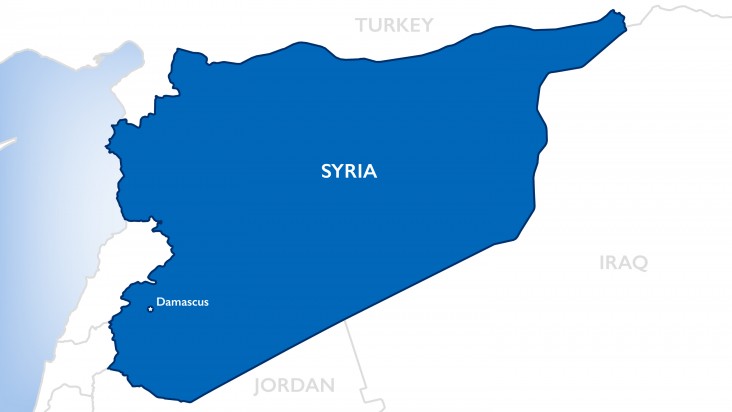- What We Do
- Agriculture and Food Security
- Democracy, Human Rights and Governance
- Economic Growth and Trade
- Education
- Environment and Global Climate Change
- Gender Equality and Women's Empowerment
- Global Health
- Humanitarian Assistance
- Transformation at USAID
- Water and Sanitation
- Working in Crises and Conflict
- Disaster Assistance
- Stabilization and Transitions
- Where We Work
- Afghanistan
- Armenia
- Bosnia and Herzegovina
- Burkina Faso
- Colombia
- Ethiopia
- Iraq
- Libya
- Malaysia
- Mozambique
- Niger
- Nigeria
- Sudan
- Ukraine
- Closed Programs
- Afghanistan
- Albania
- Angola
- Bolivia
- Bosnia & Herzegovina
- Burma
- Burundi
- Chad
- Colombia
- Croatia
- Cuba
- Côte d'Ivoire
- Democratic Republic of Congo
- East Timor
- Guatemala
- Haiti
- Honduras
- Indonesia
- Iraq
- Kenya
- Kosovo
- Kyrgyz Republic
- Lebanon
- Liberia
- Mali
- Nepal
- Nicaragua
- Nigeria
- North Macedonia
- Northern Cameroon
- Pakistan
- Peru
- Philippines
- Rwanda
- Serbia and Montenegro
- Sierra Leone
- Somalia
- South Sudan
- Sri Lanka
- Sudan
- Syria
- Tunisia
- Uganda
- Venezuela
- West Bank/Gaza
- Yemen
- Zimbabwe
- Background
- Criteria for Engagement
- Multi-Media
- Opportunities
- Our Stories
- Where We Work
- Conflict Mitigation and Prevention
- Countering Violent Extremism
- Disaster Risk Reduction
- Peacebuilding and Reconciliation
- Recovering From Crisis
- Resilience
- Tech Challenge for Atrocity Prevention
- Women, Peace, and Security
- World Humanitarian Day
- U.S. Global Development Lab
Speeches Shim

A moderate, inclusive and stable Syria
WHY USAID/OTI IS IN SYRIA
As a defining conflict of the 21st century, Syria has eluded the international community’s ability to manage and resolve its crisis. The past nine years have been marked by unimaginable barbarity: the Syrian regime and its allies have imprisoned and tortured thousands; starved and sieged entire cities and towns, forcing surrender; deployed chemical weapons; targeted civilians with airstrikes; and used crude barrel bombs to indiscriminately terrorize and take innocent lives. Violence devastated the country, with over half a million people killed and 12 million displaced—over five million of whom fled across Syria’s borders. Terrorist groups have taken advantage of the chaos as well. Al Qaeda took root in northwest Syria and remains the strongest military actor in Idlib, and the Islamic State of Iraq and Syria (ISIS)—while not currently occupying territory—retains the capacity to launch insurgent attacks.
USAID/OTI’S ROLE IN SYRIA
In October 2020, USAID/OTI concluded its Syria Regional Program (SRP) after nearly eight years of engagement in Syria. In the early stages of the conflict, OTI empowered and prepared moderate civilian entities to form a legitimate and inclusive alternative to the Assad Regime. As the regime and extremists gained ground, OTI shifted its strategy to preserving moderate space by strengthening communities’ resistance to extremism and increasing the influence of strategic moderate actors, such as the Syria Civil Defense. In the program’s final years, OTI’s strategic approach focused on enabling the recovery of communities recently liberated from ISIS rule, in line with U.S. and Coalition efforts to ensure an enduring defeat of ISIS and its territorial caliphate in the northeast Syria.
PROGRAM HIGHLIGHTS
Highlights of USAID/OTI programming in Syria include:
- Over the course of the program, OTI provided $54.7 million to the Syria Civil Defense (SCD), also known as the White Helmets, supporting its work to save 122,609 lives on the ground while casting a global spotlight on the regime’s brutal attacks against its own people. Today, the SCD remains one of strongest pillars of Syrian civil society, amplifying voices within Syria who are struggling against extremism and authoritarianism.
- OTI’s Early Recovery Team (ERT) in northeast Syria delivered 63 critical stabilization interventions such as rubble removal, road repair, and small-scale infrastructure rehabilitation to help more than a million civilians quickly recover their livelihoods and homes in areas emerging from ISIS rule. The ERT also rehabilitated Naeem Circle in Raqqa, which had been known for public beheadings and torture under ISIS. The ERT rehabilitated the public space, turning it into a popular symbol of the battered city’s revitalization.
- OTI supported local councils to provide bakery services, waste management, and electricity and water-network repairs to communities, and facilitated greater collaboration between provincial and local councils to increase public confidence in opposition civilian governance structures.

Comment
Make a general inquiry or suggest an improvement.